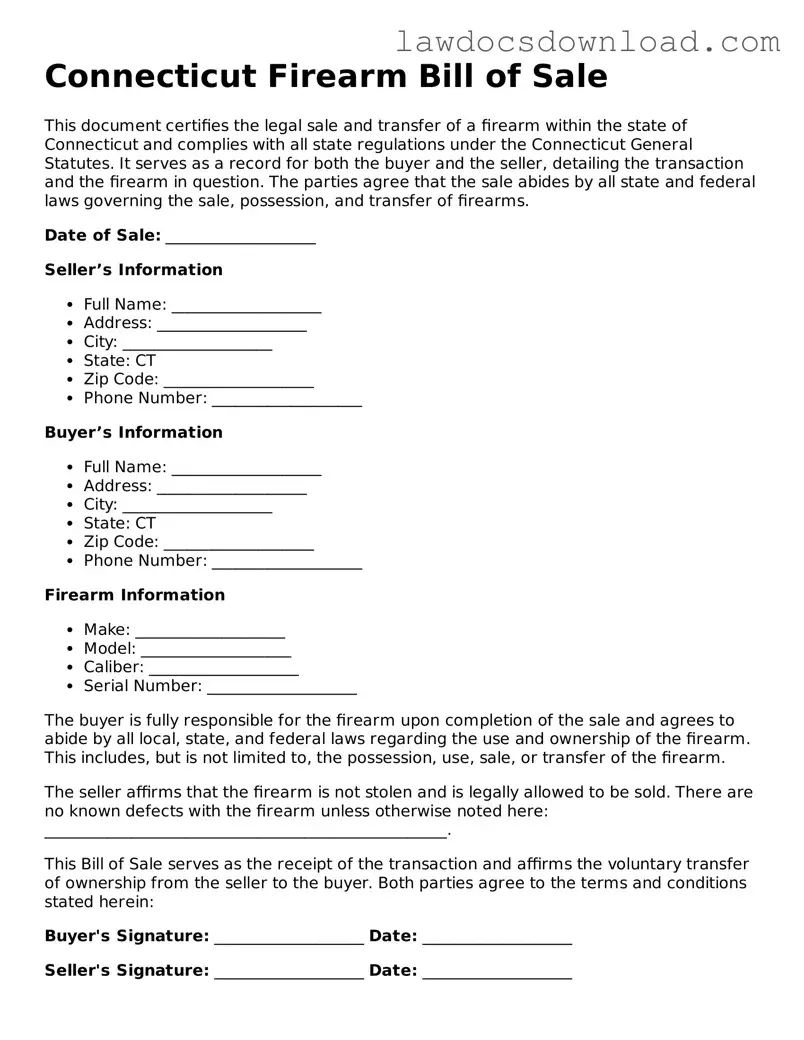Legal Connecticut Firearm Bill of Sale Form
The Connecticut Firearm Bill of Sale form is a legal document used to record the transfer of any type of firearm from a seller to a buyer. This form provides proof of purchase and confirms the change of ownership. It's an essential piece of documentation for both parties involved in the transaction to ensure compliance with state laws.
Launch Firearm Bill of Sale Editor Here

Legal Connecticut Firearm Bill of Sale Form
Launch Firearm Bill of Sale Editor Here

Launch Firearm Bill of Sale Editor Here
or
Free Firearm Bill of Sale
Get this form done in minutes
Complete your Firearm Bill of Sale online and download the final PDF.